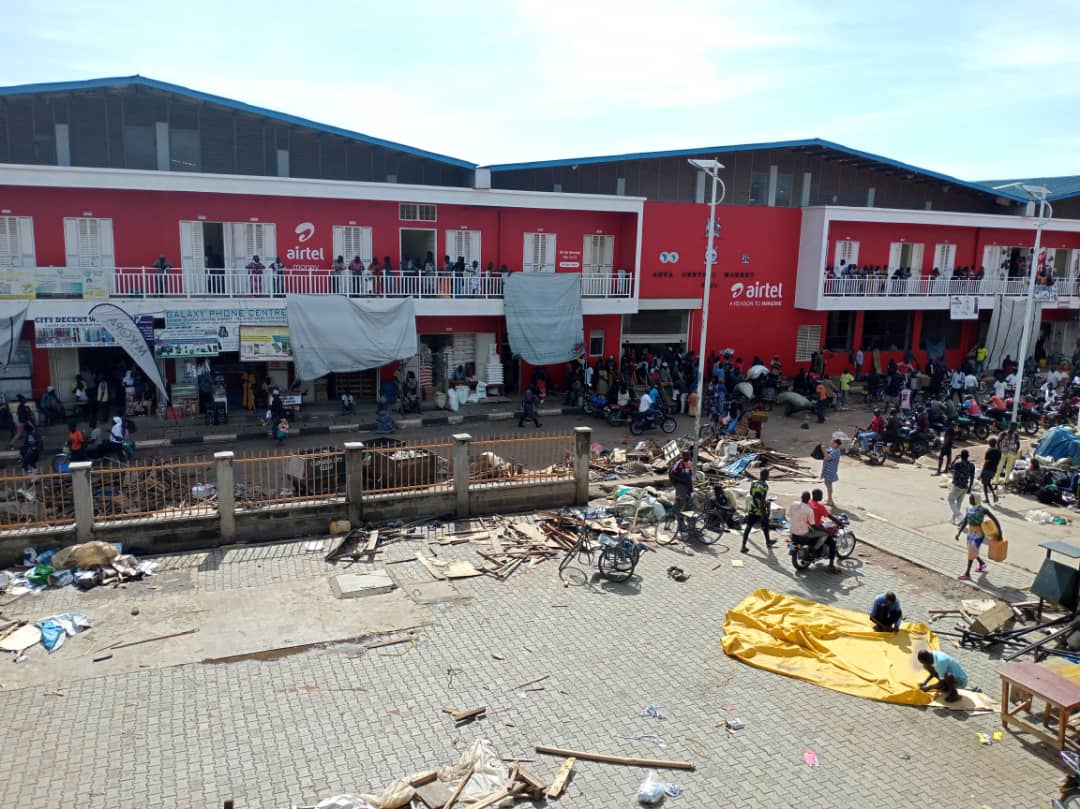OPINION: Does Museveni and his government have capacity to address high commodity prices?
The Uganda Bureau of Statistics last week said the increase in prices of commodities and services over the last 12 months ending February, has pushed Uganda’s inflation to 3.2 percent, up from 2.7 percent registered in January.
Museveni and his government have been under endless pressure from opposition political partys -- mainly Forum for Democratic Change(FDC) and National Unity Platform(NUP) -- and Ugandans at large to do something about the steadily increasing prices of goods and services.
Partly yielding to the pressure, last week, Museveni said, what I perceived as an effort to find a scapegoat, that Russian invasion in Ukraine is solely responsible for the increment of prices of commodities in Uganda.
But even with pressure piling up from Ugandans, I suspect that government of Uganda has nothing much to do about the prevailing inflation in the short-term; for so much is outside its control.
Uganda is just emerging out of an economic crisis which was posed by the two COVID-19 lockdowns. During the lockdowns, the government inevitably injected money into an inactive economy in an effort to shield her citizens against the effects of COVID-19. It's in the same lockdowns that the government freely and heavily spent on elections.
Uganda Revenue Authority, which is responsible for tax collections, is below its target by 1+ trillion shillings due to reduced economic activity created by COVID-19 lockdowns; and it's not clear whether it's to continue going below the target or otherwise ( this dynamic makes FDC's advice of exempting essential goods from tax to government not so good).
As a consequence, Uganda is incapable of running its budget as it had anticipated. Being that Uganda is a heavily indebted country, and loan repayment schedules are fixed, it's highly probable that the Central Bank is printing money more than our economic output requires, to sevice local debt.
Increasing money supply without increasing real output certainly increases monetary demand for the unchanged number of goods and hence inflation.
Further still, I highly suspect that many Ugandan companies didn't survive the choppy waters in the thick of COVID-19. Many Ugandan companies must have made huge losses and also abruptly (and even arbitrarily) laid off workers since the pandemic never sounded a durable warning.
Colossal losses on the side of companies, reduced labour due to laying off workers and Ugandans' significantly reduced purchasing power must have forced companies to drastically reduce the number of goods produced per period; which could now be causing demand-pull inflation.
Such a thing can also be a survival mechanism from companies -- to reduce the cost of production and increase the profit margin by creating scarcity. The price of one bar of soap today could buy approximately three bars of the same, Pre-COVID-19.
If it's a survival mechanism, the government might not reign in on the companies because it's government's entrenched interest to see the companies staying afloat for subsequent revenue.
And for products or goods that require agricultural raw materials, the materials could be in very short supply and therefore more expensive, since most farmers were extremely hesitant to invest in farming as there was no clear prospect of selling harvests at a profitable price.
Most farmers who had planted maize, beans, soya etc. at the onset of COVID-19 burnt their fingers for there was no sufficient demand for the much supplied harvests. The same farmers, therefore, went into hibernation and are probably just getting out of it. The high cost of raw materials certainly causes cost push-inflation.
Lastly, the price of fuel is very high compared to the price before COVID-19; which increases the cost of logistics for whatever product.













